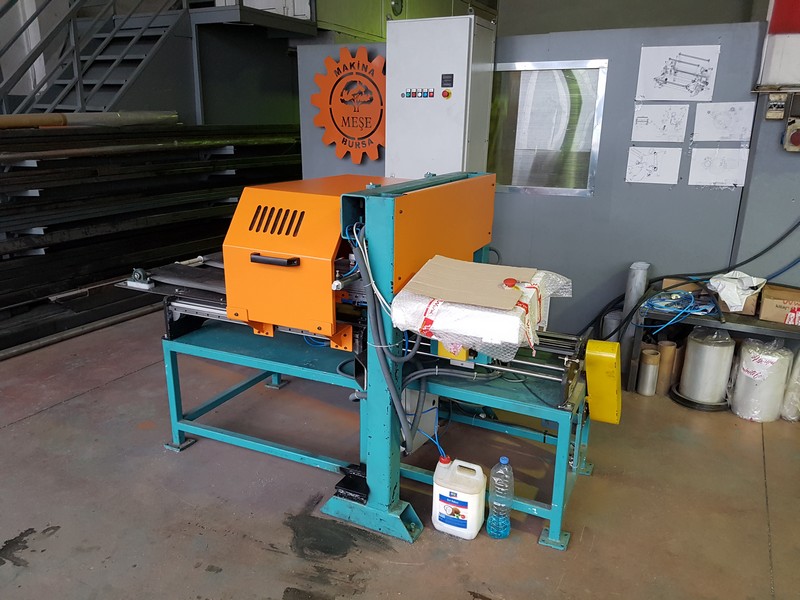The industrial machinery sector is a cornerstone of modern industries. However, the constant evolution of technology, changing market dynamics, and increasing operating costs make it crucial for businesses to maximize their return on investment (ROI) on these assets. In this comprehensive guide, we will delve into expert tips and strategies to optimize ROI with industrial machinery, helping businesses stay profitable and competitive.
Maximizing ROI with Industrial Machinery: Expert Tips and Strategies
Understanding how to maximize ROI with industrial machinery is pivotal for sustainable business growth. This entails not only using machinery efficiently but also utilizing strategies that reduce costs, increase operational efficiency, and ultimately, boost profitability.
Importance of ROI in Industrial Machinery
ROI is a critical metric for businesses, helping them measure the efficiency of their investments, especially in industrial machinery. It provides insight into how well your investment is serving your business objectives.
Understanding the Cost Structure of Industrial Machinery
Knowing the cost structure of industrial machinery is an essential first step towards maximizing ROI. This includes initial investment costs, operational costs, maintenance costs, and the cost of potential downtime.
The Art of Negotiating with Machinery Vendors
Negotiating with machinery vendors can significantly reduce machinery costs and improve ROI. Learn the expert techniques to negotiate better prices and favorable payment terms.
Choosing the Right Industrial Machinery for Your Needs
Selecting the right machinery is crucial for maximizing ROI. Explore strategies to identify machinery that matches your operational needs, budget, and long-term business goals.
The Role of Efficient Operations in ROI
Efficient operations can significantly boost ROI by minimizing waste, reducing downtime, and improving product quality. Explore how lean manufacturing and process optimization can play a crucial role in this.
Maintenance Strategies for Prolonging Machinery Life
Regular maintenance can extend machinery life, reduce repair costs, and increase ROI. Discover the best practices for preventative and predictive maintenance strategies.
Investing in Operator Training
Investing in operator training can significantly improve machinery efficiency and ROI. Learn how training can help reduce errors, prevent costly breakdowns, and improve productivity.
The Impact of Technology on ROI
Technology can have a substantial impact on ROI. From automation to AI, explore how modern technologies can help maximize the ROI from your industrial machinery.
Financing Options for Industrial Machinery
Understanding the different financing options for industrial machinery can help you make informed decisions and improve ROI. Learn about leasing, loans, and other financing options.
The Role of Analytics in Machinery ROI
Analytics play a pivotal role in maximizing machinery ROI. Through predictive analytics and real-time data monitoring, businesses can optimize machinery use, prevent failures, and increase profitability.
Implementing Energy-Efficient Practices
Energy-efficient practices can significantly reduce operating costs and improve ROI. Learn the best strategies for implementing energy efficiency in your industrial operations.
Risk Management in Industrial Machinery Investment
Effective risk management can help prevent unexpected costs and increase ROI. Understand the different types of risks and how to mitigate them in industrial machinery investments.
The Future of Industrial Machinery ROI
The future of industrial machinery ROI is shaped by factors like technological advancements, market dynamics, and regulatory changes. Discover what the future holds and how to prepare for it.
Case Study: Maximizing ROI with Industrial Machinery
Practical examples can provide valuable insights into maximizing ROI with industrial machinery. Explore real-world case studies where businesses successfully improved their ROI.
FAQs
- What does ROI mean in the context of industrial machinery?ROI, or Return on Investment, in the context of industrial machinery, refers to the financial gain or benefits a company gets from its investment in the machinery compared to the cost of the investment.
- How can I calculate the ROI for my industrial machinery?The ROI for industrial machinery can be calculated by subtracting the initial cost of the machinery from the gain or benefits derived from the machinery, and then dividing the result by the initial cost of the machinery.
- What are some strategies to maximize ROI in industrial machinery?Strategies for maximizing ROI in industrial machinery include proper maintenance, efficient operations, utilizing technology, investing in operator training, implementing energy-efficient practices, and effective risk management.
- What is the role of technology in maximizing ROI with industrial machinery?Technology plays a significant role in maximizing ROI with industrial machinery by improving operational efficiency, reducing downtime, enabling predictive maintenance, and facilitating real-time data monitoring.
- Why is operator training important for maximizing ROI with industrial machinery?Operator training is crucial for maximizing ROI as it helps reduce operational errors, prevent costly machinery breakdowns, and improve overall productivity and efficiency.
- How can I reduce the operational costs of industrial machinery?Operational costs of industrial machinery can be reduced by implementing energy-efficient practices, maintaining regular machinery upkeep, utilizing efficient operational strategies, and leveraging technology.
Conclusion
Maximizing ROI with industrial machinery is a complex yet essential task that requires a multifaceted approach. By implementing expert strategies such as regular maintenance, efficient operations, technology adoption, operator training, and effective risk management, businesses can significantly increase their ROI, ensuring long-term success and competitiveness in the ever-evolving industrial landscape.



Leave A Comment